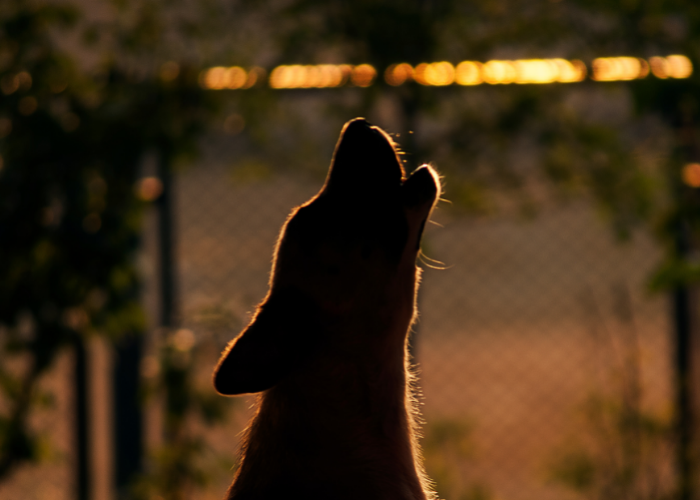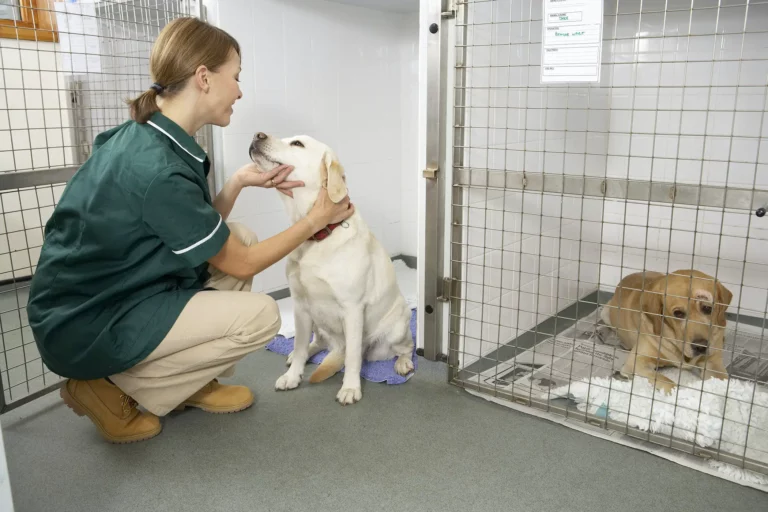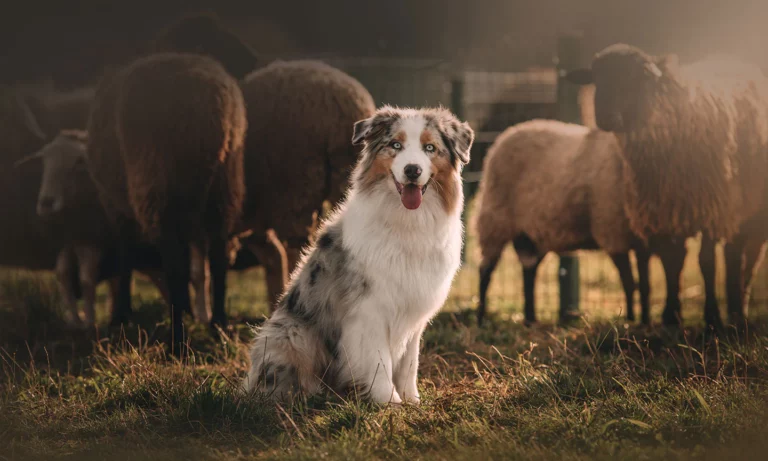Why Some Dogs Prefer Human Food Over Dog Food
My dog won’t eat dog food only human food – a dilemma many pet owners face.
Dogs, with their keen sense of taste and smell, can sometimes develop a strong preference for the flavors and aromas of human food. While it might be tempting to indulge them, it’s essential to remember the nutritional balance that dog-specific food offers.
Short Answer: Dogs may develop a preference for human food over dog food due to its taste, aroma, and texture. However, relying solely on human food can deprive them of essential nutrients found in balanced dog food.
Key Takeaways:
- Dogs have individual taste preferences.
- Human food can create a habit and reinforce certain behaviors.
- Dental issues can make eating dry dog food painful.
- A balanced diet is crucial for a dog’s overall health.
Understanding the Canine Palate: Taste Preferences
Just as we humans have our favorite dishes and flavors, our canine companions too have their own set of taste preferences. Delving into the world of canine taste can provide insights into why your dog might be leaning more toward human food.
No products found.
Individual Food Preferences
Every dog is unique, and so are their taste buds. Some might have an affinity for meaty flavors, while others might prefer the taste of certain vegetables or grains. Recognizing and respecting these individual preferences is the first step in ensuring your dog gets a meal they enjoy.
The Role of Aroma, Texture, and Taste
For dogs, the sensory experience of eating goes beyond just taste. The aroma of the food, its texture, and its overall taste play a significant role in whether they find it appealing or not.
If a particular dog food has an off-putting smell or an undesirable texture, your dog might be less inclined to eat it, no matter how nutritious it might be.
Experimentation is Key
If you find that your dog is consistently avoiding their dog food, it might be time to switch things up. Experimenting with different flavors, brands, or even homemade recipes can help you discover what your dog truly enjoys.
Remember, the goal is to find a balance between taste and nutrition to ensure your dog’s overall well-being.
The Behavioral Aspect: Reinforcement Through Human Food
Beyond the realm of taste and aroma, there’s a behavioral aspect to why dogs might prefer human food. Our actions and reactions play a significant role in shaping our pets’ preferences, and sometimes, without realizing it, we might be reinforcing their love for human food.
The Habit of Table Scraps
It’s a familiar scene: you’re at the dining table, and those puppy eyes are begging for a bite. Giving in and rewarding dogs with table scraps, even occasionally, can create a habit.
Over time, they might start expecting these treats during every meal, leading them to avoid their own food in anticipation of something “better” from the table.
Associating Human Food with Positive Experiences
Dogs are incredibly perceptive and can associate human food with positive experiences. Whether it’s the joy of getting a treat or the attention they receive when they’re given a bite, these positive reinforcements can make human food all the more appealing.
It’s essential to be mindful of these associations and ensure that rewards are balanced and not solely based on human food.
Consistency and Boundaries
To curb the preference for human food, setting boundaries is crucial. This means being consistent in what and when you feed your dog. If you decide that table scraps are off-limits, ensure everyone in the household is on the same page.
Training and positive reinforcement can also play a role in redirecting their focus back to dog food.
Physical Concerns: Dental Problems and Dog Food
While behavioral and taste preferences play a role in a dog’s inclination towards human food, physical concerns can also be a significant factor. Dental health, in particular, can greatly influence a dog’s eating habits, and understanding this can help address the root of the issue.
The Pain of Eating Kibble
Dental issues, whether it’s gum disease, tooth decay, or oral injuries, can make the act of eating kibble painful for dogs. Crunching on hard food can exacerbate the pain, leading them to avoid their regular meals. In such cases, they might show a preference for softer human food, which is easier on their teeth and gums.
The Appeal of Soft Human Food
When faced with dental discomfort, soft human food becomes a more appealing option for dogs. Foods like mashed potatoes, rice, or soft meats can be consumed without causing additional pain. However, while it’s essential to address their immediate comfort, it’s equally crucial to ensure they’re getting a balanced diet.
The Importance of Regular Dental Check-ups
To prevent dental issues from affecting your dog’s eating habits, regular dental check-ups are vital. A veterinarian can identify and treat dental problems early on, ensuring your dog’s oral health is in top condition.
Additionally, maintaining a routine of brushing your dog’s teeth and providing dental chews can help prevent future issues.
Nutritional Implications: The Risks of a Human Food-Only Diet
While it’s tempting to pamper our furry friends with the foods we love, it’s crucial to understand the nutritional implications of a human food-only diet for dogs. Our meals, though nutritious for us, might not provide the balanced nutrition dogs require for their unique physiological needs.
The Need for Balanced Nutrients
Dogs have specific dietary requirements that are different from ours. They require a balance of proteins, fats, carbohydrates, vitamins, and minerals tailored to their species. While some human foods can be beneficial in moderation, relying solely on them can lead to nutritional imbalances in dogs.
Shortcomings of a Human Food Diet
Human food, especially when not specifically prepared for dogs, may lack essential nutrients that dogs need for optimal health. For instance, certain vitamins, minerals, and amino acids present in dog food might be absent or in inadequate amounts in human food. This can lead to potential health risks over time.
Consequences of Nutrient Deficiencies
A diet deficient in essential nutrients can have various adverse effects on a dog’s health. Some potential consequences include:
- Weakened Immune System: Making them more susceptible to infections and illnesses.
- Poor Skin and Coat Health: Leading to dry skin, hair loss, and increased vulnerability to skin infections.
- Muscle Weakness: Affecting their mobility and overall energy levels.
- Digestive Issues: Such as diarrhea, constipation, or other gastrointestinal problems.
Being aware of these risks underscores the importance of providing a balanced diet, whether it’s commercial dog food or homemade meals specifically formulated for dogs.
Finding a Middle Ground: Alternatives and Solutions
It’s clear that while human food might be a treat, it shouldn’t be the sole source of nutrition for our dogs. However, that doesn’t mean we can’t explore alternatives that cater to their preferences while ensuring they receive the nutrients they need. Let’s delve into some solutions that strike a balance between taste and nutrition.
Raw Dog Food
Raw dog food, often referred to as a BARF (Biologically Appropriate Raw Food) diet, is a natural alternative that many dogs find appealing. Comprising raw meats, bones, and certain vegetables, this diet aims to mimic what dogs might eat in the wild. While it offers a fresh and unprocessed meal option, it’s essential to ensure it’s balanced and safe, free from harmful bacteria and parasites.
Cooked Homemade Dog Food
For those who prefer a more hands-on approach, preparing homemade dog food can be a rewarding experience. This allows for customization based on your dog’s preferences and dietary needs. Ingredients can be chosen carefully, and meals can be tailored to ensure a balance of nutrients.
However, it’s crucial to consult with a veterinarian or pet nutritionist to ensure the meals are nutritionally complete.
Establishing a Feeding Routine
Regardless of the food type, consistency is key. Establishing a regular feeding routine can help regulate your dog’s appetite and set clear expectations. Scheduled meal times, portion control, and a designated eating area can make mealtimes more structured and less chaotic.
This routine can also help in transitioning your dog from a human food preference back to dog food.
Frequently Asked Questions
Navigating the world of canine nutrition can be complex, especially when faced with a dog that has a strong preference for human food. Here are some commonly asked questions to provide clarity on the topic.
Why is my dog not eating his dog food but eating human food?
Dogs may find human food more palatable, or they might have developed a habit due to being rewarded with human food. The flavors, textures, and aromas of our meals can be enticing, and over time, dogs might develop a preference, especially if they associate human food with positive experiences.
Why does my dog prefer human food over dog food?
This can be due to a variety of reasons, including taste preferences, past experiences, or even dental issues that make eating dog food uncomfortable. Just as we have our favorite foods, dogs too have their likes and dislikes.
Additionally, if they’ve been given human food as a treat or reward, they might associate it with positive feelings, further reinforcing the preference.
What can I feed my dog that will not eat dog food?
Consider alternatives like raw dog food or cooked homemade meals tailored to their preferences. Both options allow for a fresh and unprocessed meal experience. However, it’s essential to ensure that these meals are nutritionally balanced.
Consulting with a veterinarian or pet nutritionist can also provide guidance on specialized diets or commercial dog food brands that might be more appealing to your dog.
Is it bad to only feed your dog human food?
Yes, solely relying on human food can deprive your dog of essential nutrients, leading to health issues. While our meals might be nutritious for us, they might not provide the balanced nutrition dogs require. Over time, a human food-only diet can lead to deficiencies, affecting their overall health and well-being.
Final Thoughts
Navigating the dietary preferences of our canine companions can be a journey filled with challenges and discoveries. While the allure of human food is undeniable for many dogs, it’s essential to remember the importance of a balanced and nutritious diet tailored to their specific needs.
Whether it’s understanding their taste preferences, addressing behavioral habits, or finding alternative meal solutions, the goal remains the same: ensuring our furry friends lead healthy, happy lives.
By staying informed, consulting with professionals, and being consistent in our approach, we can strike the perfect balance between indulgence and nutrition for our beloved pets.


![Can a Dog Eat Pork Rib Bones? [3 Risks You Need to Know]](https://www.warmlypet.com/wp-content/uploads/2022/12/Can-a-Dog-Eat-Pork-Rib-Bones.webp)




